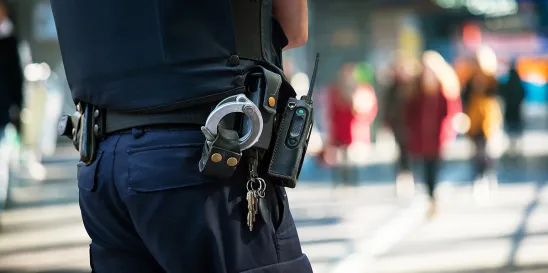Last week, the Supreme Court declined to hear a challenge to a Massachusetts data privacy law that prohibits secret audio recordings. As a result, the statute remains unchanged as well as a First Circuit panel opinion from December 2020 that the public can secretly record police (notwithstanding that the Massachusetts statute otherwise bars all surreptitious recordings).
In 1968, the Massachusetts legislature enacted Section 99, which provides “that the uncontrolled development and unrestricted use of modern electronic surveillance devices pose grave dangers to the privacy of all citizens of the commonwealth.” Mass. Gen. Laws ch. 272, § 99(A). The statute makes it a crime for “any person” to “willfully commit[] an interception, attempt[] to commit an interception, or procure[] any other person to commit an interception or to attempt to commit an interception of any wire or oral communication.” Id. at § 99(C)(1).
Following the statute’s passage, the Massachusetts Supreme Court twice ruled—once in 1976 and again in 2001—that the statute does not exempt the recording of the audio of a person who had no “reasonable expectation of privacy” in what was recorded. To put it otherwise, even recordings in public places could fall under Section 99’s prohibition
The First Circuit’s ruling in Project Veritas Action Fund v. Rollins, 982 F.3d 813 (1st Cir. 2020), however, affirmed a district court ruling that the Massachusetts statute violates the First Amendment by prohibiting the secret, nonconsensual audio recording of police officers discharging their official duties in public spaces. Central to the First Circuit’s ruling was the determination that such recordings can serve a newsgathering purpose. The Court found that:
[A] citizen’s audio recording of on-duty police officers’ treatment of civilians in public spaces while carrying out their official duties, even when conducted without an officer’s knowledge, can constitute newsgathering every bit as much as a credentialed reporter’s after-the-fact efforts to ascertain what had transpired. The circumstances in which such recording could be conducted from a distance or without the officers’ knowledge and serve the very same interest in promoting public awareness of the conduct of law enforcement — with all the accountability that the provision of such information promotes — are too numerous to permit the conclusion that recording can be prohibited in all of those situations without attracting any First Amendment review. We thus hold that the [] Plaintiffs’ proposed recording constitutes a type of newsgathering that falls within the scope of the First Amendment, even though it will be undertaken secretly within the meaning of [Mass. Gen. Laws ch. 272, § 99].
Project Veritas had argued in its petition to the Supreme Court that the First Circuit should have gone farther by throwing out the entire law on constitutional grounds.




 />i
/>i

